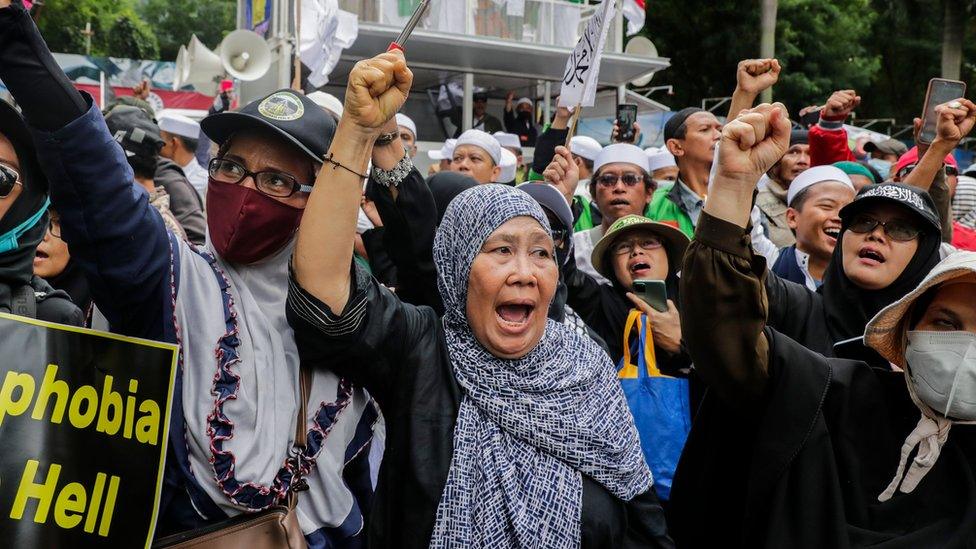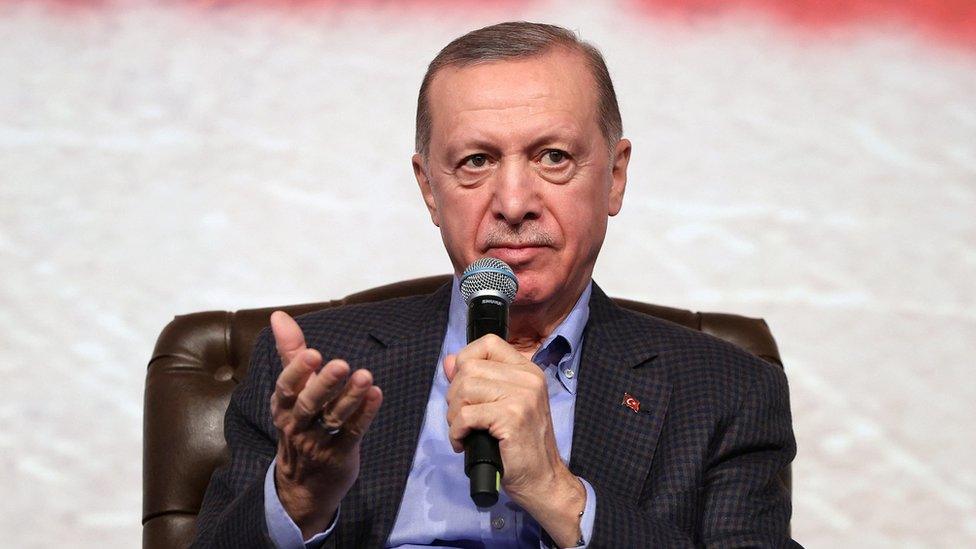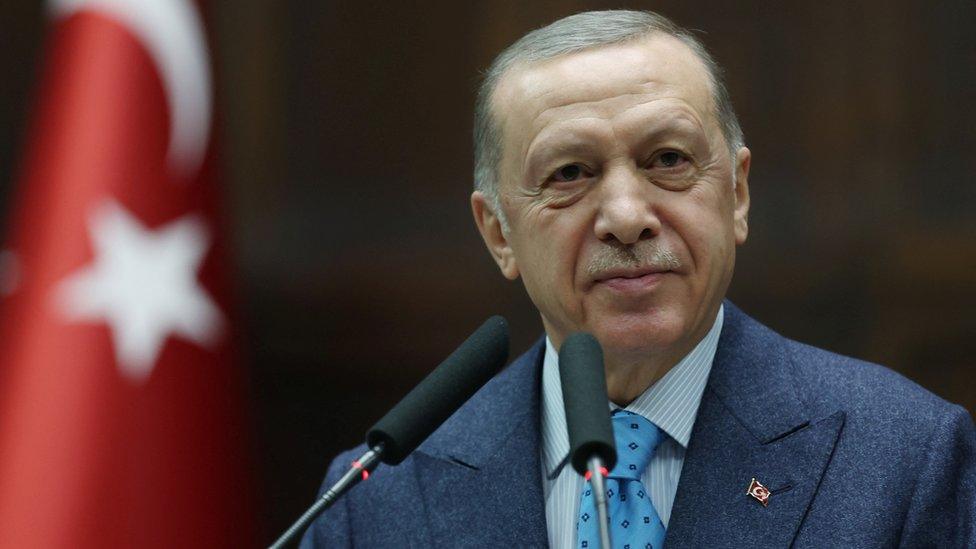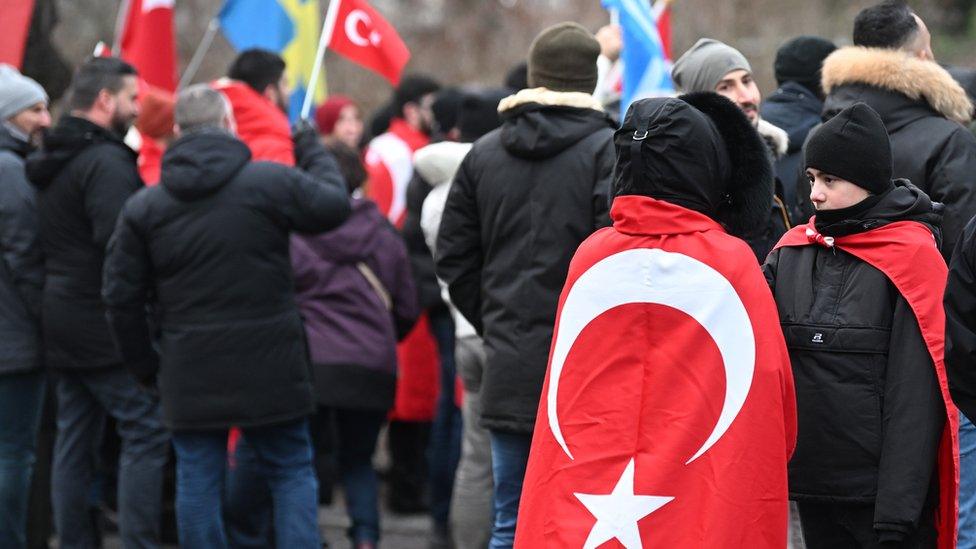Swedish flag burnt in Jakarta amid Turkey Nato row
- Published

The protest on Jakarta on Monday
Protesters gathered outside Sweden's embassy in Jakarta, Indonesia, on Monday to demonstrate against the burning of a Quran by a far-right Danish politician.
Rasmus Paludan destroyed the Muslim holy book in Stockholm earlier in January outside the Turkish embassy.
The burning, and other protests, have led to a major diplomatic row between Sweden and Turkey.
Sweden needs Turkey's approval to join Nato - something now under threat.
Turkish President Recep Tayyip Erdogan recently said his country may approve Finland's bid, but not Sweden's.
Other anti-Sweden protests have also taken place in Pakistan, Iraq, Iran, Afghanistan, and Lebanon this month.
The Swedish embassy in Jakarta said the burning does not reflect the government's opinion.
"We urge the Indonesian government to not just condemn this, but to also join in boycotting everything Swedish," said one protester in Jakarta, Wati Salam.
"What they [the Swedes] did was an insult to our holy scripture," said another, Junaedi Abdilla.
Since Russia's invasion of Ukraine in February last year, both Sweden and Finland have applied to join Nato.
Any Nato enlargement must be approved by all 30 members - and Turkey seemingly agreed to Sweden and Finland's bid in June.
But formal approval has been held up. Turkey has told Stockholm it must extradite Kurds it view as terrorists.
Turkey has put pressure on Sweden to specifically distance itself from the Kurdistan Workers' Party (PKK). The group is regarded as a terrorist group by Turkey, the US and the EU.
Sweden has made legal changes that allows it to make tougher anti-terror laws demanded by Turkey.
The government has also lifted a ban on selling military equipment to Turkey, in place since Ankara's military intervention in Syria in 2019.
But Turkey was angered when an effigy of the Turkish president was hanged by Kurdish groups in Stockholm in January.
Turkey then cancelled a planned visit to the country by Sweden's defence minister, at the time of the Quran burning.
It had been hoped the trip could resolve Ankara's objections to Sweden's Nato bid.
The Turkish government described the Quran burning as a "vile act" and said the Swedish government's decision to allow the protest to go ahead was "completely unacceptable".
According to Reuters news agency, the permit Mr Paludan received from police stated that his demonstration was against Islam, and what he called Turkey's President Tayyip Erdogan's attempt to influence freedom of expression in Sweden.
- Published29 January 2023

- Published23 January 2023

- Published21 January 2023
